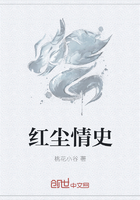"Think of Richard!" she said, and shuddered at the terrors which that name conjured up. Before it was possible to say a quieting word to her, she was again on her feet. Richard's name had suddenly recalled to her memory Launce's mysterious allusion, at the outset of the interview, to the owner of the yacht. "What was that you said about Richard just now?" she asked. "You saw something (or heard something) strange while papa was telling his story. What was it?""I noticed Richard's face, Natalie, when your father told us that the man overboard was not one of the pilot-boat's crew. He turned ghastly pale. He looked guilty--""Guilty? Of what?"
"He was present--I am certain of it--when the sailor was thrown into the sea. For all I know, he may have been the man who did it."Natalie started back in horror.
"Oh, Launce! Launce! that is too bad. You may not like Richard--you may treat Richard as your enemy. But to say such a horrible thing of him as that-- It's not generous. It's not like _you_.""If you had seen him, you would have said it too. I mean to make inquiries--in your father's interests as well as in ours. My brother knows one of the Commissioners of Police, and my brother can get it done for me. Turlington has not always been in the Levant trade--I know that already.""For shame, Launce! for shame!"
The footsteps on deck were audible coming back. Natalie sprang to the door leading into the cabin. Launce stopped her, as she laid her hand on the lock. The footsteps went straight on toward the stern of the vessel. Launce clasped both arms round her. Natalie gave way.
"Don't drive me to despair!" he said. "This is my last opportunity. I don't ask you to say at once that you will marry me, I only ask you to think of it. My darling! my angel! will you think of it?"As he put the question, they might have heard (if they had not been too completely engrossed in each other to listen) the footsteps returning--one pair of footsteps only this time.
Natalie's prolonged absence had begun to surprise her aunt, and had roused a certain vague distrust in Richard's mind. He walked back again along the deck by himself. He looked absently in the main cabin as he passed it. The store-room skylight came next. In his present frame of mind, would he look absently into the store-room too?
"Let me go!" said Natalie.
Launce only answered, "Say yes," and held her as if he would never let her go again.
At the same moment Miss Lavinia's voice rose shrill from the deck calling for Natalie. There was but one way of getting free from him. She said, "I'll think of it." Upon that, he kissed her and let her go.
The door had barely closed on her when the lowering face of Richard Turlington appeared on a level with the side of the sky-light, looking down into the store-room at Launce.
"Halloo!" he called out roughly. "What are you doing in the steward's room?"Launce took up a box of matches on the dresser. "I'm getting a light," he answered readily.
"I allow nobody below, forward of the main cabin, without my leave. The steward has permitted a breach of discipline on board my vessel. The steward will leave my service.""The steward is not to blame."
"I am the judge of that. Not you."
Launce opened his lips to reply. An outbreak between the two men appeared to be inevitable, when the sailing-master of the yacht joined his employer on deck, and directed Turlington's attention to a question which is never to be trifled with at sea, the question of wind and tide.
The yacht was then in the Bristol Channel, at the entrance to Bideford Bay. The breeze, fast freshening, was also fast changing the direction from which it blew. The favorable tide had barely three hours more to run.
"The wind's shifting, sir," said the sailing-master. "I'm afraid we shan't get round the point this tide, unless we lay her off on the other tack."Turlington shook his head.
"There are letters waiting for me at Bideford," he said. "We have lost two days in the calm. I must send ashore to the post-office, whether we lose the tide or not."The vessel held on her course. Off the port of Bideford, the boat was sent ashore to the post-office, the yacht standing off and on, waiting the appearance of the letters. In the shortest time in which it was possible to bring them on board the letters were in Turlington's hands.
The men were hauling the boat up to the davits, the yacht was already heading off from the land, when Turlington startled everybody by one peremptory word--"Stop!"He had thrust all his letters but one into the pocket of his sailing jacket, without reading them. The one letter which he had opened he held in his closed hand. Rage was in his staring eyes, consternation was on his pale lips.
"Lower the boat!" he shouted; "I must get to London to-night." He stopped Sir Joseph, approaching him with opened mouth. "There's no time for questions and answers. I must get back." He swung himself over the side of the yacht, and addressed the sailing-master from the boat. "Save the tide if you can; if you can't, put them ashore to-morrow at Minehead or Watchet--wherever they like." He beckoned to Sir Joseph to lean over the bulwark, and hear something he had to say in private. "Remember what Itold you about Launcelot Linzie!" he whispered fiercely. His parting look was for Natalie. He spoke to her with a strong constraint on himself, as gently as he could. "Don't be alarmed;I shall see you in London." He seated himself in the boat and took the tiller. The last words they heard him say were words urging the men at the oars to lose no time. He was invariably brutal with the men. "Pull, you lazy beggars!" he exclaimed, with an oath. "Pull for your lives!"















